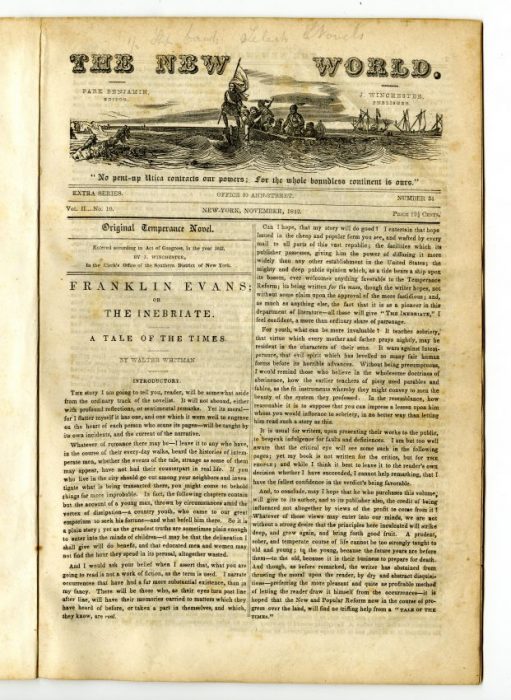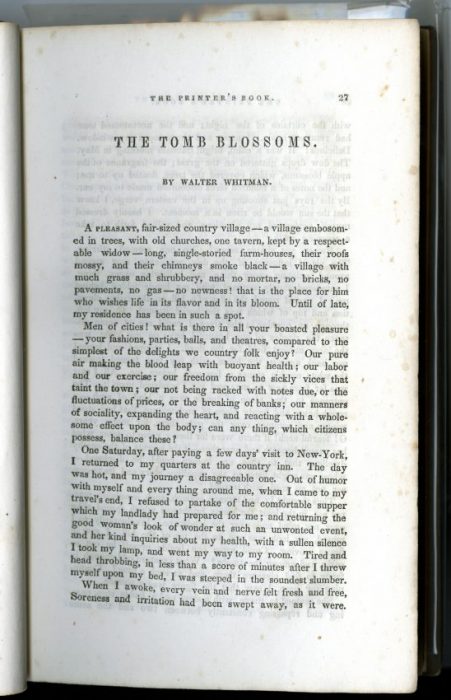“Ambition, [poem], in Brother Jonathan 1 (29 January 1842), p. 5.
Originally published in the Long Island Democrat in 1836, “Ambition” is one of Whitman’s first published poems. Brother Jonathan was the first weekly illustrated publication in the United States. The name of the publication was a reference to Brother Jonathan, a fictional character personifying New England, similar in appearance to the figure of Uncle Sam. Another issue within this first volume of Brother Jonathan contains Whitman's essay on Charles Dickens, "Boz and Democracy," which celebrated Dickens' 1842 visit to New York.
Franklin Evans: Or, the Inebriate. A Tale of the Times. New York: The New World, 1842.
This novel is Walt Whitman's first separately published work. The novel takes up the entire “Extra” issue of The New World and chronicles the life of Franklin Evans, who comes to New York as a young man to better his fortune, but is quickly corrupted and eventually becomes a drunkard. After numerous misfortunes, including the death of two wives, Franklin Evans concludes that "total abstinence" is the only safe course for him to follow. Although Whitman was sympathetic to the temperance movement, which was then at its height in America, later in life he admitted that he wrote the story for the commission.
“The Tomb Blossoms,” in Voices from the Press: A Collection of Sketches, Essays, and Poems, edited by James J. Brenton. New-York: Charles B. Norton, 1850.
This story was originally published in the January 1842 issue of The United States Magazine and Democratic Review. In "The Tomb Blossoms" Whitman highlights the dedication of a widow, Mrs. Delaree, who tends two graves because she does not know which plot in the pauper's burial ground contains the remains of her husband.

![“Ambition, [poem], in Brother Jonathan 1 (29 January 1842), p. 5. “Ambition, [poem], in Brother Jonathan 1 (29 January 1842), p. 5.](https://exhibitions.lib.udel.edu/whitman/wp-content/uploads/sites/39/2019/10/Ambition-poem-in-Brother-Jonathan-1.2-e1579105534366.jpg)


